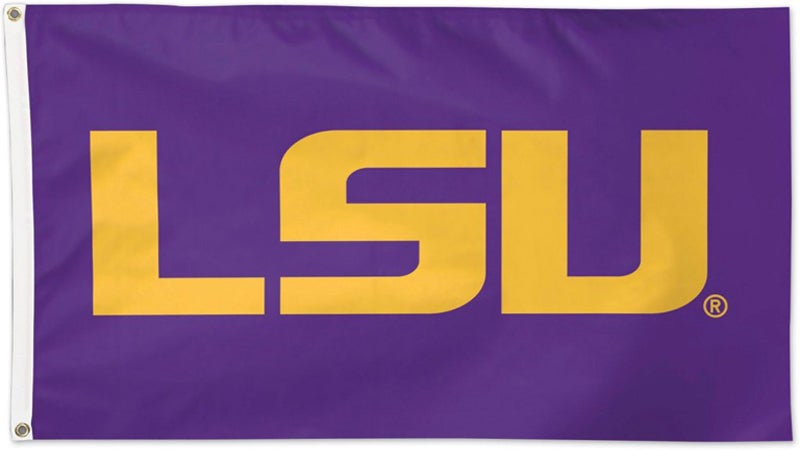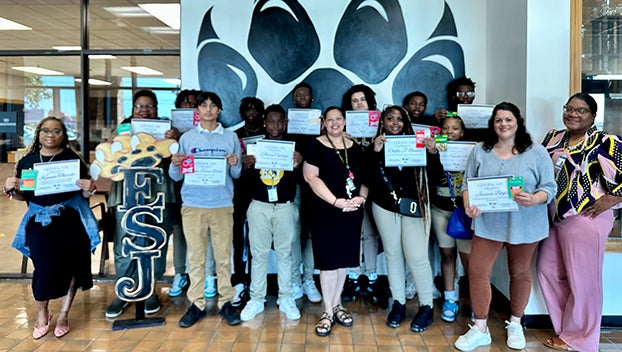LSU Manship School Awarded the Southern States Communication Association’s 2020 Minority Recruitment and Retention Award
Published 9:30 am Sunday, May 9, 2021
|
Getting your Trinity Audio player ready...
|
BATON ROUGE – LSU’s Manship School of Mass Communication has received the Southern States Communication Association’s 2020 Minority Recruitment and Retention Award. The award honors institutions that have demonstrated noteworthy commitment to the recruitment and retention of minority students for their campuses.
“This is truly a tremendous honor,” said Josh Grimm, interim dean of LSU’s Manship School. “We have a long way to go when it comes to diversity and inclusion, but this award represents an important step forward and underscores our efforts to create a diverse, equitable and inclusive educational environment at the Manship School.”
The Manship School has a longstanding commitment to increasing diversity, equity and inclusion in its curriculum, culture and outreach. In addition to creating the nation’s first and only endowed chair in race, media and cultural literacy, the Manship School recruited a large and diverse cohort of faculty in fall 2019. This cohort of scholars and professionals amplified representation among the school’s faculty with dynamic, inclusive research agendas and interests, including representations of marginalized groups—specifically related to class, gender, race, ability, sexuality and geography—in mass media; discrimination and media law; interpersonal engagement among racialized minorities; public relations, digital and social media campaigns addressing #BlackLivesMatter and #MeToo; and historical influences of the Black Press.
Along with a representative and diverse faculty, an inclusive, diverse student body is a critical focus at the Manship School. Incoming students in spring 2020 were 30 percent non-white, increasing the proportion of students of color to 24 percent. And their leadership in and out of the classroom is robust and valued. The school’s Association of Black Communicators was named LSU’s 2020 Organization of the Year and became an official student affiliate chapter of the National Association of Black Journalists. Additionally, in summer 2020, the school established the Diversity, Equity and Media Grant for graduate students and faculty to support scholarship specifically related to race and media.
The work of the school’s Reilly Center for Media & Public Affairs further enhances this commitment. A critical episode in the Center’s spring 2020 virtual event series, “An Unequal Relationship: Race and COVID-19,” sparked a yearlong partnership focused on racism with Southern University and A&M College’s Nelson Mandela College of Government and Social Sciences, Louisiana Budget Project, NAACP Louisiana State Conference and LSU Office of Diversity, Equity & Inclusion.
“Receiving this award is a recognition of the strides Manship is making towards creating an inclusive intellectual and professional community,” said Tina M. Harris, the Manship School’s Douglas L. Manship Sr.-Dori Maynard Race, Media and Cultural Literacy Endowed Chair and the Manship School’s Diversity Committee chair. “I appreciate the opportunity to be a part of this continual transformation.”
For more information, contact acharbonnet1@lsu.edu.
LSU’s Manship School of Mass Communication ranks among the strongest collegiate communication programs in the country, with its robust emphasis on media and public affairs. It offers undergraduate degrees in public relations, journalism, political communication, digital advertising and pre-law, along with four graduate degree programs: Master of Mass Communication, Ph.D. in Media and Public Affairs, Certificate of Strategic Communication and a dual MMC/Law degree. Its public relations students were recently ranked the #1 team in the nation, and its digital advertising and student media teams frequently earn national recognition.
The purpose of the Southern States Communication Association is to promote the study, criticism, research, teaching and application of the artistic, humanistic and scientific principles of communication. SSCA, a not-for-profit organization, exists for educational, scientific and literary purposes only.





